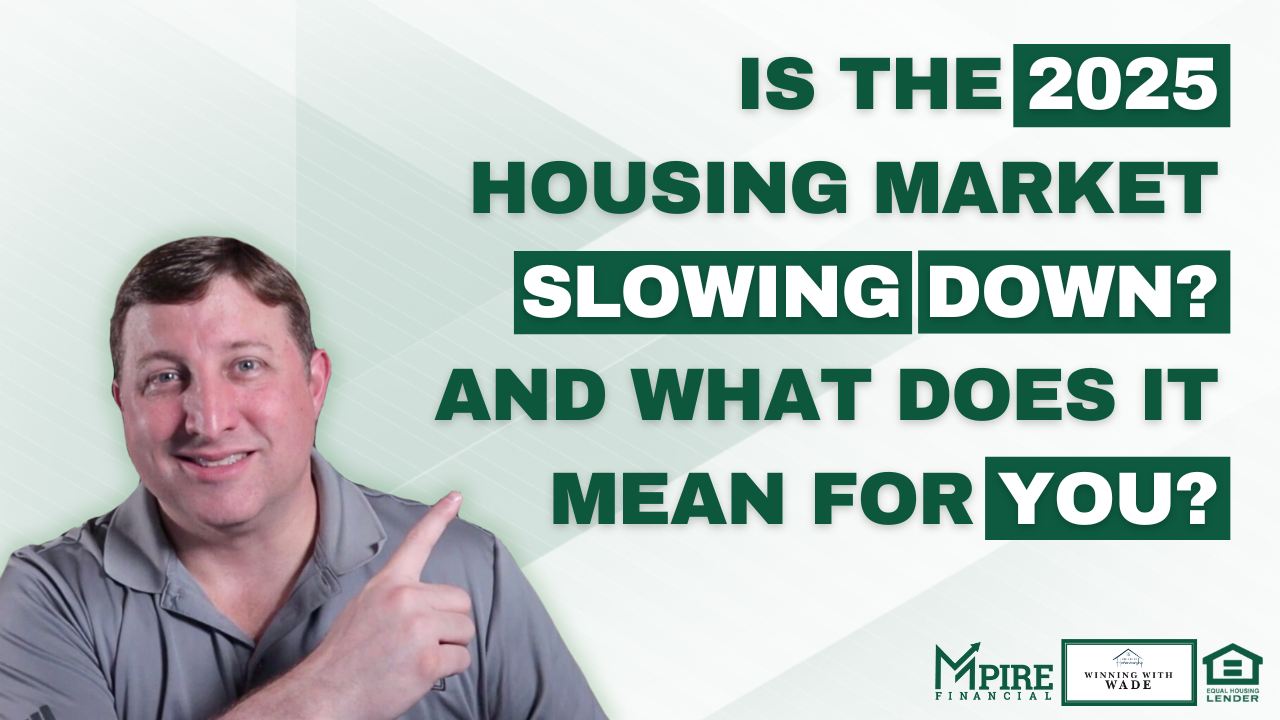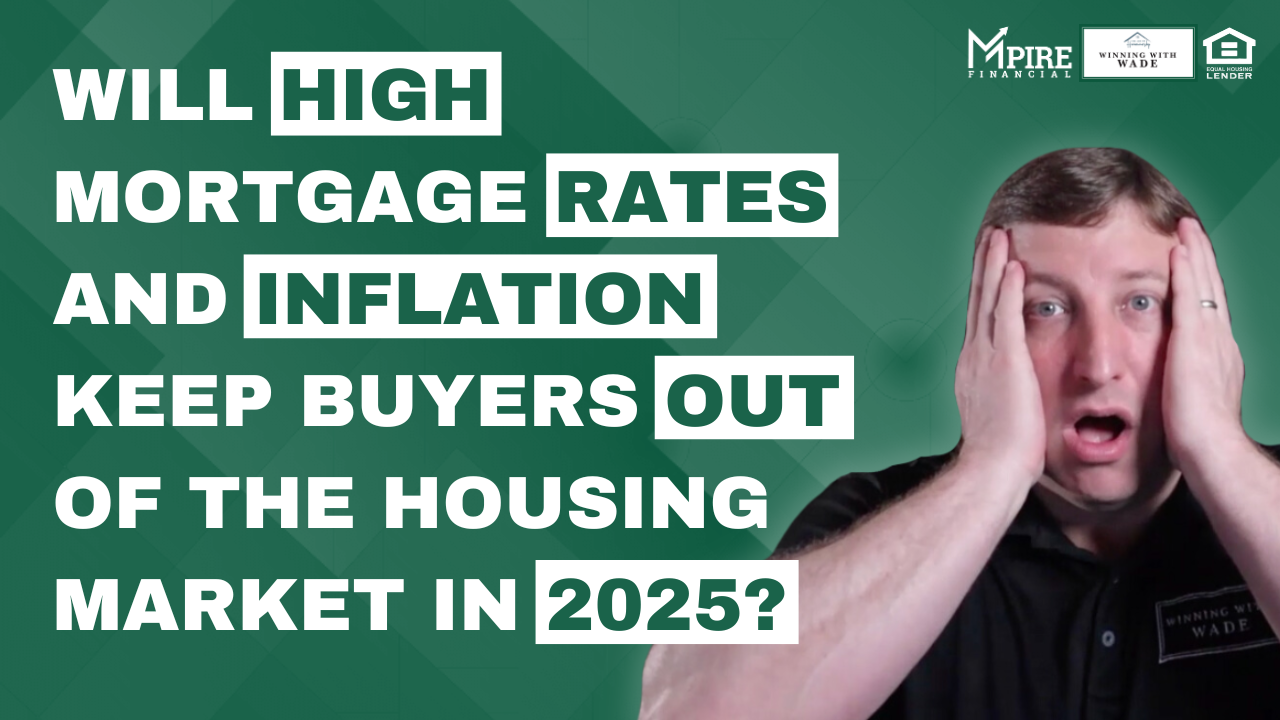The housing market in 2025 is set for a shift. Zillow lowered its home value…
The 2025 Housing Market: Key Trends and Insights
The 2025 housing market is shaping up to be an intriguing mix of opportunities and challenges for homebuyers and homeowners alike.
With significant developments on the horizon, understanding these trends can help you navigate this dynamic landscape with confidence. Here’s a closer look at the key factors shaping the 2025 housing market.
Mortgage Rates: A Gradual Decline
Mortgage rates have been a dominant conversation topic in recent years, and 2025 will be no different. According to the National Association of Realtors (NAR), the average 30-year fixed-rate mortgage is expected to stabilize around 6%, down slightly from the highs experienced in 2024.
Why It Matters
- Lower mortgage rates will make borrowing more affordable.
- Buyers who previously held off due to higher rates may feel encouraged to re-enter the market.
- Increased demand may create more competition, so early preparation is key.
For homebuyers, locking in a mortgage rate at the right time could mean substantial savings over the loan term.
Home Prices: Modest Appreciation Ahead
Home prices are expected to grow steadily but at a slower pace compared to recent years. Realtor.com projects a 3.7% increase in median home sale prices in 2025, following a 4% rise in 2024.
A Balanced Market for Buyers and Sellers
- Sellers can benefit from continued appreciation in property values.
- Buyers may find relief from the rapid price hikes seen in previous years.
- A more balanced market promotes healthier negotiations and greater stability.
If you’re considering buying or selling, 2025 may offer an ideal window of opportunity with more predictable pricing trends.
Inventory Levels: Signs of Relief
The tight housing inventory has long been a challenge, but 2025 promises a shift in availability. Realtor.com forecasts an 11.7% increase in inventory, the largest since 2019.
What This Means for Buyers
- More housing options create opportunities for buyers to find properties that suit their needs.
- Greater inventory could moderate price growth, improving affordability.
- Increased competition among sellers may lead to more attractive offers for buyers.
This uptick in availability is a welcome development for buyers who have struggled with limited choices in previous years.
Regional Hotspots: Markets to Watch
Certain cities are expected to experience significant growth in 2025, driven by factors like affordability, income growth, and migration patterns. According to industry forecasts, the following cities are worth watching:
- Colorado Springs: Affordable housing options and strong economic growth.
- Miami: Attracting buyers due to its vibrant lifestyle and favorable climate.
- Virginia Beach: A rising market with growing interest from remote workers and retirees.
Key Insight
If you’re looking to invest or relocate, focusing on these emerging hotspots could offer long-term financial and lifestyle benefits.
Affordability Challenges: A Persistent Concern
Despite the stabilization of mortgage rates and rising inventory, affordability remains a challenge. Higher home prices coupled with mortgage rates, though improved, still present hurdles for many buyers, particularly first-time homebuyers.
How to Navigate Affordability Issues
- Explore financing options such as FHA loans or first-time buyer programs.
- Evaluate your budget to understand what you can afford without overextending.
- Consider alternative markets where prices are more manageable.
With careful planning, buyers can overcome affordability concerns and make informed purchasing decisions.
Home Renovations: A Smart Investment
As housing costs remain significant, many homeowners are turning to renovations instead of buying new properties. The trend toward upgrading existing homes is expected to continue in 2025, with a particular focus on:
- Energy Efficiency: Upgrades like solar panels, insulation, and smart thermostats.
- Smart Home Features: Technology-driven enhancements for convenience and security.
Investing in home improvements not only increases property value but also enhances comfort and functionality.
Technological Integration: AI in Real Estate
The real estate industry is rapidly adopting technology, and artificial intelligence (AI) is at the forefront of this transformation. AI tools are improving:
- Market Analysis: Enhanced accuracy in pricing and market trends.
- Decision-Making: Streamlined processes for buyers, sellers, and agents.
- Property Searches: Personalized recommendations based on buyer preferences.
Staying informed about these advancements can give buyers and sellers a competitive edge in 2025’s evolving market.
Environmental Considerations: Sustainability Takes Center Stage
Sustainability is becoming a priority for modern homebuyers, with a focus on creating climate-resilient, eco-friendly homes. Key trends in 2025 include:
- Green Building Materials: Reducing environmental impact during construction.
- Energy-Efficient Appliances: Lowering utility costs while benefiting the environment.
- Sustainable Landscaping: Eco-friendly outdoor designs to conserve resources.
Incorporating these features not only reduces environmental impact but also makes homes more appealing to eco-conscious buyers.
Insurance Costs: Preparing for Rising Premiums
Natural disasters, inflation, and other factors are driving up home insurance premiums. Homeowners need to be prepared for increased expenses tied to:
- Climate-related risks (e.g., floods, hurricanes, wildfires).
- Rising rebuilding and repair costs.
How to Manage Rising Insurance Costs
- Shop around for competitive insurance rates.
- Explore ways to reduce premiums through home improvements (e.g., storm-proofing).
- Build insurance expenses into your long-term financial plan.
Political and Economic Factors: Staying Informed
The housing market does not exist in isolation—it’s influenced by political and economic developments. Events such as upcoming elections and changes to economic policies can impact:
- Regulations around homeownership and lending.
- Tax policies affecting real estate.
- Broader market stability and buyer confidence.
Staying informed about these factors will help you anticipate shifts in the housing market and make proactive decisions.
Conclusion: Navigating the 2025 Housing Market
The 2025 housing market promises a mix of opportunities and challenges. Key takeaways include:
- Mortgage Rates: Gradual stabilization around 6%.
- Home Prices: Modest appreciation at 3.7%.
- Inventory: A significant uptick in availability.
- Affordability: Continued challenges but manageable with planning.
- Trends: Renovations, technology, and sustainability will play critical roles.
By staying informed about these trends and assessing your financial goals, you can confidently navigate the market—whether you’re buying, selling, or investing in your current home.




